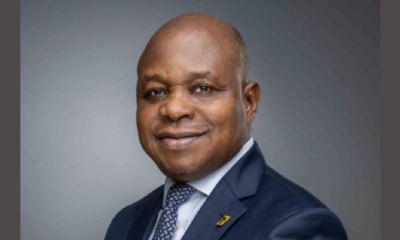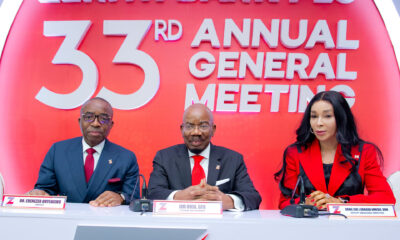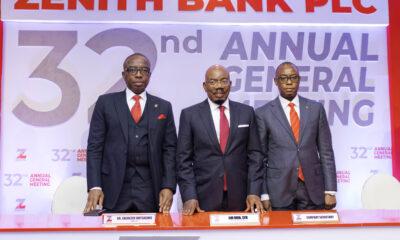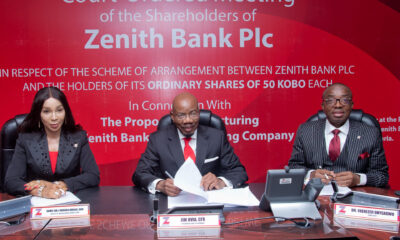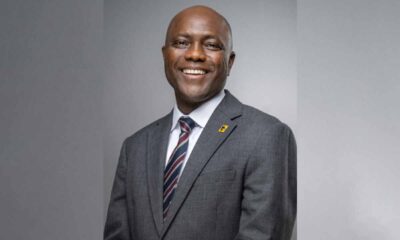First Bank of Nigeria Limited, Nigeria’s premier and leading financial inclusion services provider, has announced the commemoration of the 2021 and 60th edition of its annually sponsored Lagos Amateur Golf Championship. The tourney is scheduled to Tee-Off at the golf section of Ikoyi Club 1938 on Thursday, 18 – Sunday 21 November 2021.
The FirstBank Lagos Amateur Open Golf Championship is a World Amateur Golf Ranking (WAGR) listed competition that attracts the best golfers from the amateur scene, not only in Nigeria but across the continent and indeed the world. Participating in the competition contributes to the points for golfers to aid their WAGR rankings.
Preceding the competition will be a press conference, scheduled to hold on Wednesday 10th November 2021 at the Ikoyi Club House Terrace, where the CEO of FirstBank Nigeria Limited, Dr. Adeola Adeduntan will unveil the landmark edition of the longest-running known golf competition sponsorship the 60th FirstBank Lagos Amateur Open Golf Championship.
The highlights of the press conference are the unveiling of the “Corporate Golf Challenge”, “CEO’s CUP”, ProAm and Ladies Invitational. The Corporate Golf Challenge for Charity will be participated by twenty-Five (25) corporate teams of 4 players to compete in a networking environment of corporate hospitality designed to drive corporate social responsibility goals. It holds on Thursday 18th November, while the official competition will Tee-Off on Friday, 19th November through to the Championship Finals on Sunday, 21st November 2021. The net proceeds from team entry fees will be disbursed to charities under the FirstBank SPARK initiative. SPARK, an acronym – Start Performing Acts of Random Kindness – is a values-based initiative designed to raise consciousness that we can choose to be kind.
In addition, the “CEO’s CUP” is a newly introduced prize for the overall gross winner of the championship to recognise this indelible landmark and the unbroken legacy at the diamond jubilee.
The ProAm event, scheduled for Sunday 21st November 2021 is earmarked to recognise Professional Past Winners of the competition. Tagged ROLL OF HONOUR, the past winners play with invited amateur guests for a cash prize of US$5,000.00 (Five Thousand Dollars) as well as trophies and other prizes. The LADIES INVITATIONAL is a subset event of the ProAm, comprising female guests invited by the Bank.
Speaking on the landmark event the Group Head, Marketing and Corporate Communications, Ms. Folake Ani-Mumuney said “at FirstBank, we are excited to celebrate the landmark diamond jubilee of the Lagos Amateur Open Golf Championship which is indeed the longest sponsored golf championship in the country and arguably, the continent. For decades FirstBank has been at the forefront of the growth and development of sports in Nigeria, cutting across various and notably sporting events in the country. Sponsoring sports reflect our belief in the role of sports as a major vehicle for social development, whilst also being a unifying force of individuals, irrespective of language, culture, religion and social strata in any given society.
To continuously encourage and develop the game of golf, a series of professional coaching clinics and skills competitions are held during the Championships. The clinic will be facilitated each day, from Friday, 19th to Sunday 21st November 2021 at Ikoyi Club 1938 Golf Club Driving Range. Participants in the clinic include school children as well as advanced golf players that want to learn and/or improve their golf game. Participants are also able the exhibit their skills in Beat the Pro – Longest Drive and Beat the Pro – Nearest-To-the-Pin competitions.
Other FirstBank sponsored sporting events include the Georgian Cup of Kaduna Polo Tournament, sponsored for 102 years; the Dala Tennis Hard Court in Kano Club for over 30 years; the Obasanjo Pro-Amateur Golf tournament of Abeokuta Club now in its 5th year. The Bank’s influence in the development of sport in Nigeria is under its First@Sport initiative.
About FirstBank
First Bank of Nigeria Limited (FirstBank) is the premier Bank in West Africa and the leading financial inclusion services provider in Nigeria for over 127 years.
With over 750 business locations and over 130,620 Banking Agents spread across 99% of the 774 Local Government Areas in Nigeria, FirstBank provides a comprehensive range of retail and corporate financial services to serve its over 30 million customers. The Bank has an international presence through its subsidiaries, FBN Bank (UK) Limited in London and Paris, FBNBank in the Republic of Congo, Ghana, The Gambia, Guinea, Sierra-Leone and Senegal, as well as a Representative Office in Beijing.
The Bank has been handy at promoting digital payment in the country and has issued over 10million cards, the first bank to achieve such a milestone in the country. FirstBank’s cashless transaction drive extends to having more than 10million people on its USSD Quick Banking service through the nationally renowned *894# Banking code and over 4.5 million people on FirstMobile platform.
Since its establishment in 1894, FirstBank has consistently built relationships with customers focusing on the fundamentals of good corporate governance, strong liquidity, optimised risk management and leadership. Over the years, the Bank has led the financing of private investment in infrastructure development in the Nigerian economy by playing key roles in the Federal Government’s privatisation and commercialisation schemes. With its global reach, FirstBank provides prospective investors wishing to explore the vast business opportunities that are available in Nigeria, an internationally competitive world-class brand and a credible financial partner.
FirstBank has been named “Most Valuable Bank Brand in Nigeria” six times in a row (2011 – 2016) by the globally renowned “The Banker Magazine” of the Financial Times Group; “Best Retail Bank in Nigeria” for seven consecutive years (2011 – 2017) by the Asian Banker International Excellence in Retail Financial Services Awards and “Best Bank in Nigeria” by Global Finance for 15 years. Our brand purpose is always to put customers, partners and stakeholders at the heart of our business, even as we standardise customer experience and excellence in financial solutions across sub-Saharan Africa, in consonance with our brand vision “To be the partner of the first choice in building your future”. Our brand promise is always to deliver the ultimate “gold standard” of value and excellence. This commitment is anchored on our inherent values of passion, partnership and people, to position You First in every respect.
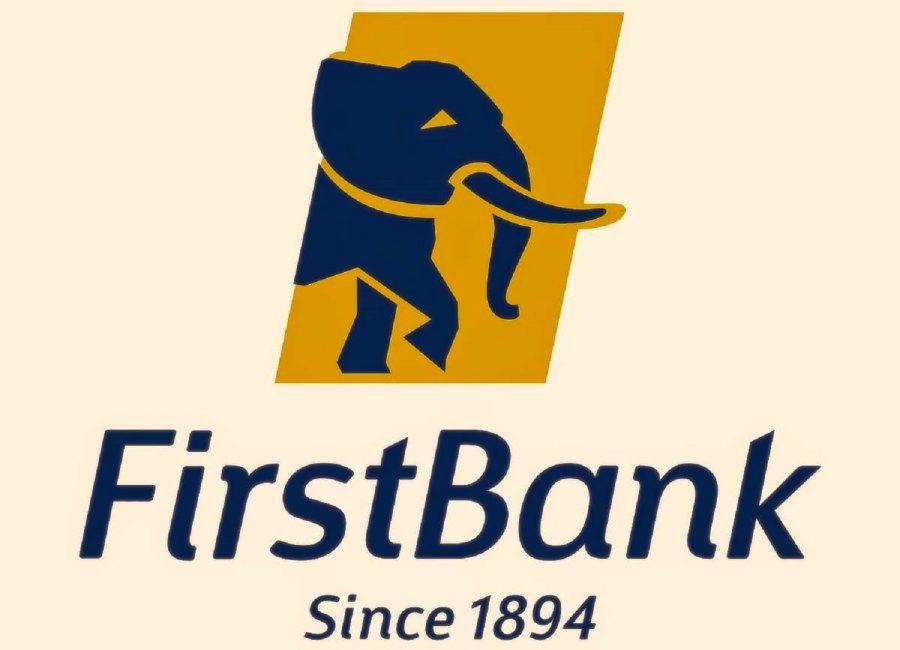

 Naira4 weeks ago
Naira4 weeks ago


 Naira4 weeks ago
Naira4 weeks ago


 Naira3 weeks ago
Naira3 weeks ago


 News4 weeks ago
News4 weeks ago
 Travel4 weeks ago
Travel4 weeks ago




 Naira4 weeks ago
Naira4 weeks ago


 Jobs3 weeks ago
Jobs3 weeks ago
 Naira3 weeks ago
Naira3 weeks ago

